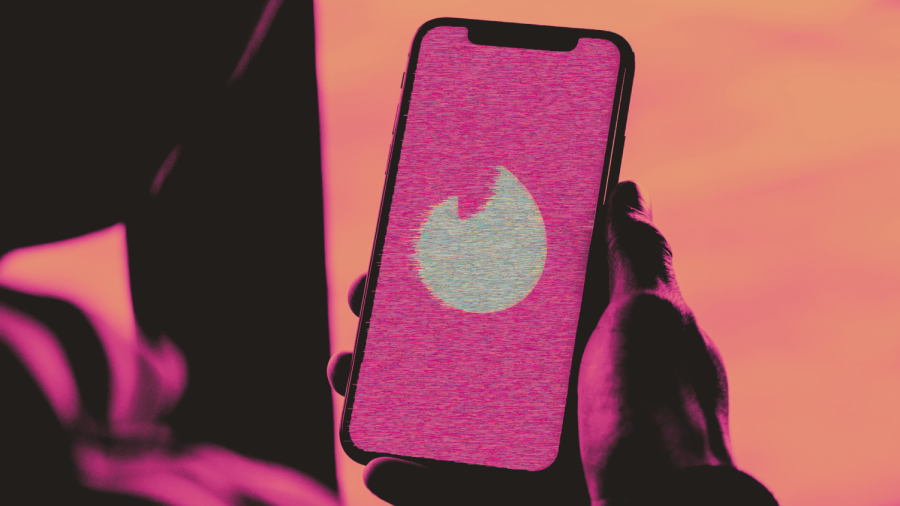Cowley: Dating Apps Make it Harder to Find Real Connection
(Graphic by Sydney Stam | The Daily Utah Chronicle)
October 20, 2022
On Sept. 12, 2022, the dating app Tinder turned 10 years old. I haven’t been active on dating apps for almost a year now, but I remember how it felt to use them. I remember scrolling for hours and hours, less to find someone I was interested in and more out of total boredom.
When I would match with someone, I always felt too awkward to message first. I’m sure many others share my experience. Seventy-five percent of adults aged 18 to 24 have reported using Tinder at least once. The same study reports that Tinder is the app of choice for most college students.
The way we date has shifted dramatically in the past 10 years. With dating apps becoming the norm and making the dating pool larger than ever before, I wonder if technology has truly made it easier to make romantic connections. From what I’ve seen, apps like Tinder have only made it harder to make those connections, and we need to adapt.
Dating in the Modern Day
Anyone who has opened a dating app before can tell you how much they focus on physical appearance. Most apps only require four things: name, age, location and a picture. While you can go above and beyond and add a bio or a Spotify anthem, most accounts provide nothing more than a few pictures to go off of. This brings physical appearance to the forefront of any sort of romantic interaction. When the only thing to go off of on someone’s profile is their appearance, it puts more pressure on you. According to a study conducted by the American Psychological Association, Tinder users on average report lower satisfaction with their body and looks than those who don’t use the app.
On top of the added pressures and impact dating apps can have on self-esteem, many people in the modern day are unhappy with their dating lives. Compared to data from 10 years ago, people are much less content with their dating experience. In a study done by Pew, 67% of people saw their dating lives as not going well. During the pandemic, Tinder saw usage of the app soar. The company even calls 2020 their “busiest year.”
There are other issues with Tinder and other dating apps like it. A sense of entitlement permeates many interactions throughout the app. On more than one occasion if I did not message a match back within an hour, they would un-match me. The lack of face-to-face contact emboldens people to act in ways that would not fly when talking to a potential date in real life. It’s easy to forget that living, breathing people exist on the other side of the text conversation.
What’s the Solution?
Dating apps have fundamentally changed the way we meet each other. Pre-2013, the majority of couples met through mutual friends or family. Now, the majority of people meet their partners online. We have shifted away from more organic ways of meeting potential partners. It often feels like online is the only way to meet people.
I am not an expert on dating by any means. Coming into college, part of the draw of dating apps for me was how easy it would make talking to potential dates. However, the more time I spent swiping through an endless sea of profiles, the less I actually wanted to go out with any of them. The toll dating apps took on me began to outweigh any positives the app once had for me. I was disheartened. Is this all that modern day dating offers? Such a sense of hopelessness accompanies modern dating.
People need to start approaching the online dating process with more compassion. The current attitudes of entitlement and its superficial nature do nothing but make the dating experience worse for everyone involved.
In my limited dating experience, my most meaningful relationships were with people I met in real life. Only after I deleted my dating apps did I begin to date my current partner. Technology plays an important role in our lives, and I don’t expect anyone to disconnect from that anytime soon. Online dating and dating apps will continue to become more normalized as time passes. In a time where we have never been more interconnected, it is important to practice empathy and compassion — even when the person you’re talking to is behind a screen.









